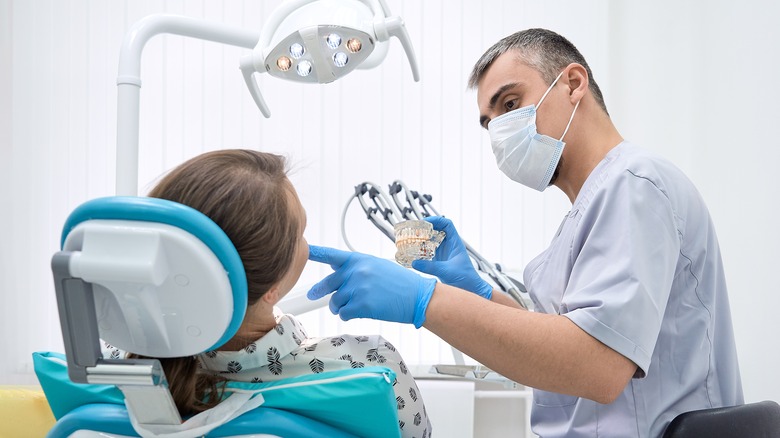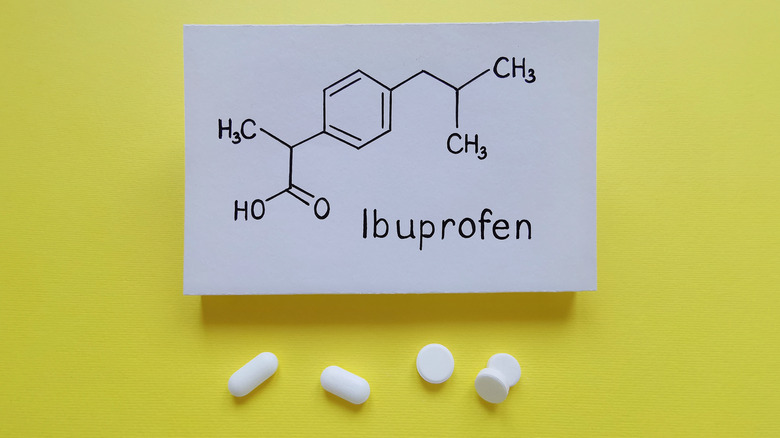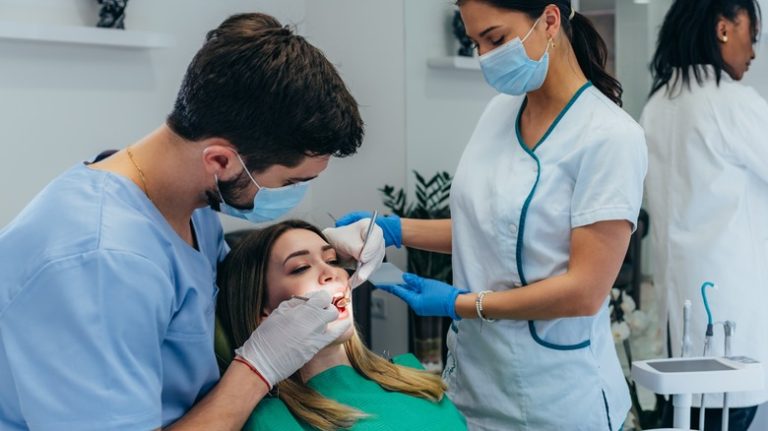Of all the perks that come with being a baby, the fact that we don’t remember the extreme discomfort of our sharp baby teeth pushing through our little gums ranks pretty high on the list. However, wisdom teeth — a third set of molars that typically come in between our late teens and early twenties — lie in waiting, hoping to give us a taste of what our younger selves once endured.
Some lucky people — those born without wisdom teeth — get to skip the whole song and dance entirely. Most of us, however, have somewhere between one and four wisdom teeth that may try to make their way to the surface (per Healthline). There are a slew of complications that can come with the emergence of wisdom teeth, the most common of which occurs when there isn’t enough room in the mouth for the new teeth. For that reason, many people choose to have them surgically removed. And while wisdom tooth extraction is the better option for many people, it isn’t exactly a walk in the park.
However, in an exclusive interview with Health Digest, Dr. Anu Isaac, DMD and founder of Coral Dental Care in Salem, Massachusetts, gives us her expert tips on navigating the days after wisdom tooth removal surgery and explains how we can expedite the recovery process.
What to expect

Surgery can be intimidating, but knowing what to expect can make it a little less so. Dr. Isaac explains that during wisdom tooth removal surgery, a few different things can happen depending on where and how your wisdom teeth are positioned. “During the procedure, the dentist may have [to] cut the gum to gain access to the impacted tooth. Depending on the position of the wisdom tooth, the dentist may have to cut a little bit of bone also in order to gain access to it.” Once your dentist has clear access to the tooth, Dr. Isaac explains that they may cut the tooth in two pieces in order to make removal easier. After the tooth is out, she says your dentist may put in some stitches to close the wound, which will be removed after a week or 10 days.
When it comes to recovery, Dr. Isaac explains that recovery time varies, depending on how impacted the tooth was and how extensive the surgery had to be in response. “It could range [from] 3 days to about 2 weeks.” Swelling in the cheeks, difficulty fully opening the mouth, and pain — which varies in intensity depending on the extent of your surgery — are all common after wisdom tooth extraction, Dr. Isaac says.
What to do and what not to do after surgery

To ensure proper recovery, Dr. Isaac notes, “It is important for patients to follow the instructions that the dentist provides post-extraction and take the antibiotic and pain killer as prescribed by the dentist.” A few general rules she says you should follow after wisdom tooth removal surgery include: abstaining from smoking and drinking alcohol for 24 hours, refraining from brushing the area for 24 hours, as well as vigorously rinsing the mouth or spitting, and avoiding straws, exercise, and strenuous activity.
She recommends using an ice pack to combat pain and swelling and to only eat foods that are cold and soft. Spicy, chewy, hard, and hot foods should be avoided for at least 24 hours. “If the area continues to bleed, take a moist tea bag and bite on it for 5 minutes to allow the bleeding to stop, said Dr. Isaac, adding, “Never hesitate to call your dentist if you have any questions.”
How to combat discomfort

Danijela Maksimovic/Shutterstock
“Pain and swelling are the most common post extraction discomfort. Ibuprofen is the recommended prescription as it not only helps with pain, but also helps with management of swelling post extraction,” Dr. Isaac explains, noting that Ibuprofen can be alternated with acetaminophen. “Swelling usually occurs the next day and may get worse before it gets better. Applying [an] ice pack helps.” She says that the pain may also increase on the second or third day, but that too will gradually get better.
“Opening the mouth may be difficult as the jaw muscles get bruised during a surgical extraction. Again, gradually it will get better,” Dr. Isaac assures us. Some people may notice a bad taste or smell after a few days, so Dr. Isaac stresses the importance of keeping the wound and surrounding area clean. “Rinsing the mouth with warm salt water after 24 to 48 hours helps with the healing and keeping the area clean. Avoid using alcoholic mouth rinse.”
She points out that it’s normal for some people to experience some bruising on the lip or cheek, which could last up to ten days. “If a patient experiences tingling or numbness of the lip, tongue, check or teeth, they should call their dentist or oral surgeon immediately.”
To learn more about Dr. Anu Isaac, visit her office’s website. Check out her articles on wisdom tooth removal and recovery after wisdom tooth removal for more information and pro tips.



